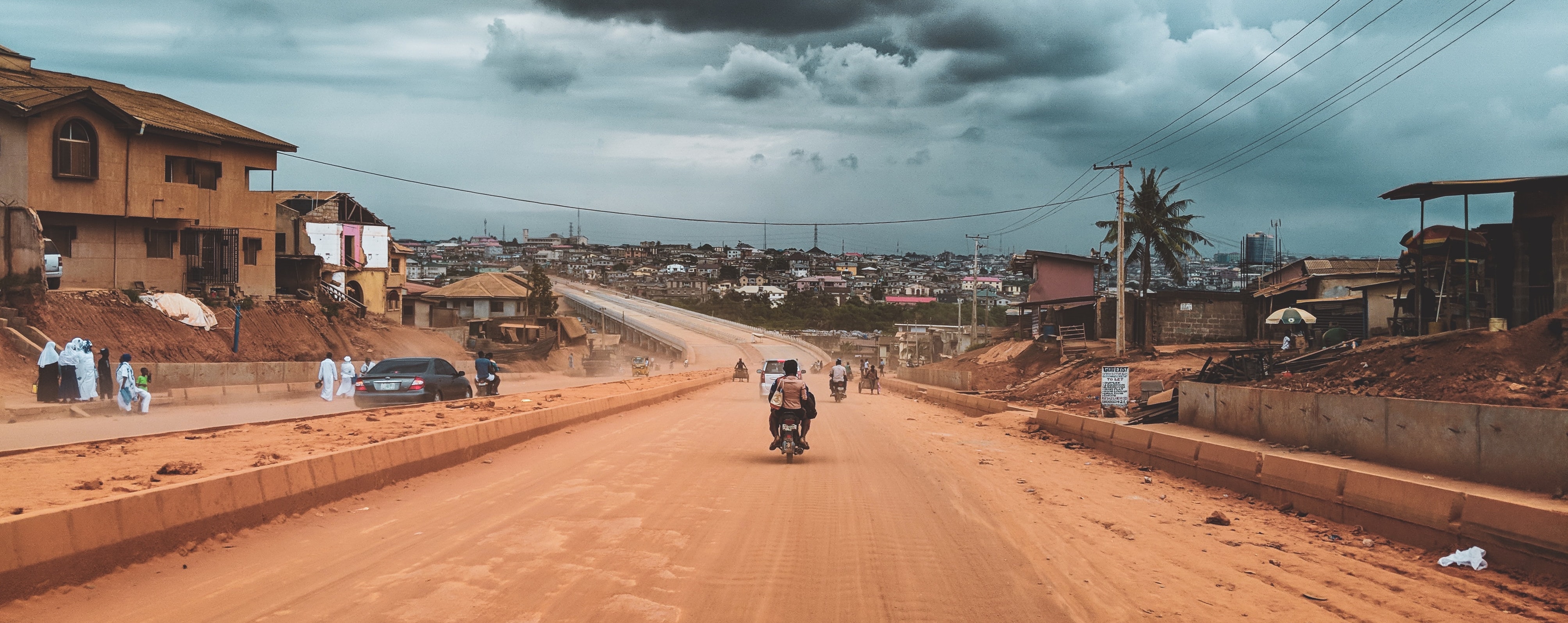Nigeria Resilience Factsheet
Poverty and economic insecurity in Nigeria is compounded by endemic corruption, unresponsive governance, violent extremism, intergroup conflict, displacement and climate issues.
Image

In Nigeria, recurrent shocks and stresses have depleted or severely destabilized social safety nets and resources, disproportionately affecting vulnerable demographics. The situation in northeast Nigeria is particularly dire.
For instance, one in four households have been displaced and have lost opportunities to engage in economic activities. Many communities suffer from inadequate access to basic services and public infrastructure, limited income and livelihood opportunities and increased demands on a shrinking resource base. These issues have resulted in permanent outmigration, displacement and tensions between returnees, internally displaced persons and host communities. COVID-19 restrictions have led to increased food prices and food insecurity.
Program Strategies
USAID prioritizes livelihoods, security, basic services and emerging local governance, targeting girls, youth, women, the elderly, internally displaced persons, returnees and vulnerable host communities. Resilience is at the forefront of the Mission’s Country Development Cooperation Strategy (2020–2025), which seeks to support a prosperous, stable and resilient Nigeria through:
- Broadened and inclusive economic growth
- A healthier, better educated population
- Accountable, inclusive and responsive governance strengthened
- Greater stability and early recovery advanced in targeted states
In addition, USAID’s Feed the Future Country Plan guides resilience programming in conflict-prone areas in the northeast, in coordination with the Government of Nigeria’s Inter-Ministerial Task Force and Humanitarian Coordination Working Group, where investments build the resilience of households and market systems to adapt and transform in the face of hardships.
Activities and Strategic Partnerships
Integrated programming is layered in the Resilience Focus Zone, currently located entirely in the states of Borno, Adamawa and Yobe in the northeast area of the country. The most significant resilience activities are as follows:
The Rural Resilience Activity benefits 90,000+ households across four northeast states by facilitating and protecting economic recovery and growth with the goal to sustainably move people out of chronic vulnerability and poverty. The activity:
- Provides up-to-date evidence for the selection of market systems, livelihoods and employment opportunities that contribute to inclusive and resilient growth and improved nutrition
- Stimulates market systems growth and diverse economic opportunities
- Builds capacity to take advantage of market systems opportunities
- Supports collaborative learning to improve activity effectiveness, sustainability and scale
The Feed the Future Nigeria Integrated Agriculture Activity supports vulnerable populations disenfranchised by conflict, particularly those in northeast Nigeria, by seeking to reengage them in basic farming activities. Informed by the USAID Resilience Policy and Program Guidance, the activity seeks to increase adaptive capacities, strengthen risk management and improve social and economic conditions of vulnerable populations. The activity contributes to economic recovery for vulnerable households by developing value chains and market systems, promoting non-farm enterprise opportunities and improving agricultural productivity and nutrition-sensitive, women- and youth-centered agricultural approaches.
Water for Agriculture improves access to water for 4,000 smallholder farmers and 50,000 livestock herders in selected post-crisis-affected communities in the northeast. The activity aims to:
- Improve access to water and small-scale irrigation infrastructure
- Strengthen capabilities of local governments and communities to sustainably manage water resources
- Strengthen agricultural productivity and production capabilities of smallholder farmers and livestock herders
- Mitigate conflicts among smallholder farmers and livestock herders and ensure implementation of inclusive, participatory, gender-responsive programming
The Small Town Water, Sanitation and Hygiene Activity will rehabilitate public water supply systems and sanitation schemes in small towns in the Borno, Adamawa and Yobe states. These towns are local centers of economic activity and are more accessible to the poor because of their geographic proximity and lower threshold for migration, two important factors in the absence of formal safety nets.
USAID cross-sectoral education investments have taught 300,000 children literacy and numeracy skills in eight relatively safe local government areas. Another example of a successful strategic partnership in the northeast is USAID’s partnership with cellular firms, which restored cellular connectivity to 700,000 Nigerians. This provided a vital channel for safety and security information, and allowed businesses to reopen, spurring economic growth and reconnecting formerly cut-off communities with the rest of the country.
When working together, USAID and other donors can influence programming, facilitate burden sharing in support of the Buhari Plan, and incentivize private sector investments. This will catalyze long-term economic recovery and enhance future growth. To facilitate both public alignment and private sector investments, USAID’s Bureau for Resilience, Environment, and Food Security (REFS) and Development Credit Authority (currently the Development Finance Corporation) will establish a jointly funded guarantee that facilitates access to financial services for small and growing enterprises, creating investment opportunities.
USAID will support trade and policies to limit the impact of COVID-19 measures on food security; sustain local production and supply chains and keep prices down; protect markets, jobs, and small businesses; and build resilience to prepare markets and food systems against future shocks.
Evaluation and Learning
REFS is supporting evaluation research in northeast Nigeria to learn how resilience programming impacts key capacities and outcomes and how durable resilience progress is in the context of conflict and displacement.




